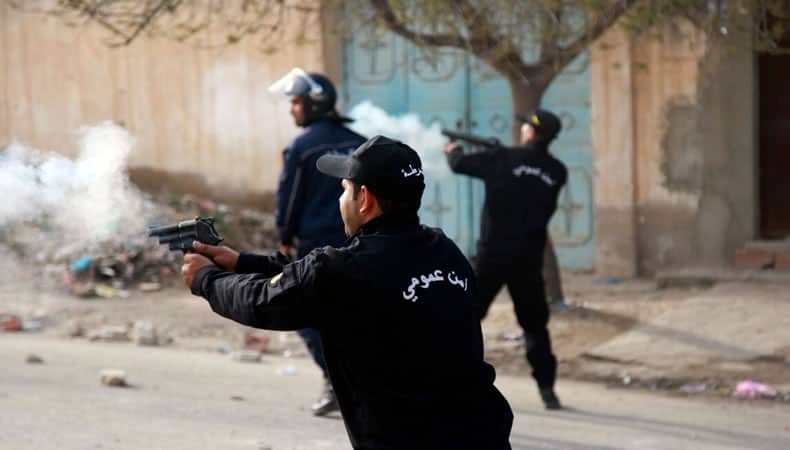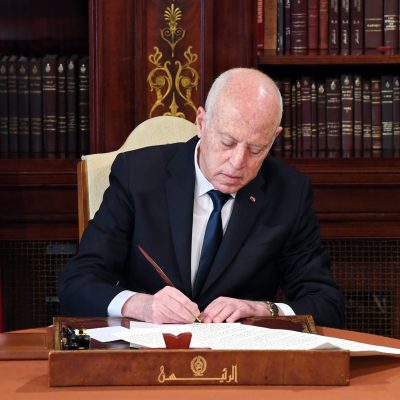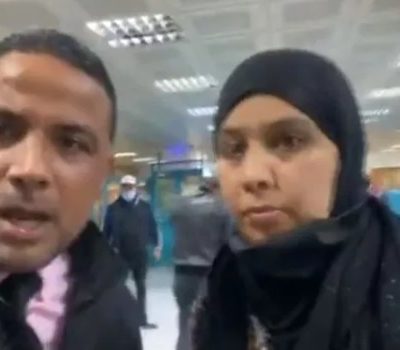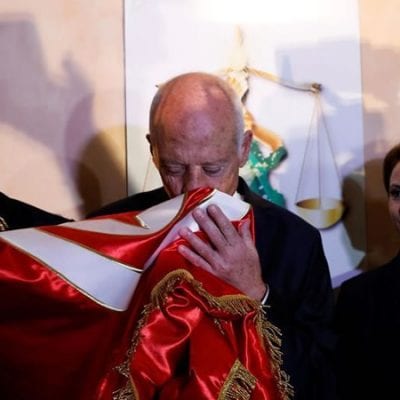EXCLUSIVE: Justice will run its course in Tunisia, but the Brotherhood does not give up

Former Board of Truth and Dignity (IVD) member Ibtihel Abdellatif has made heavy accusations against former IVD chairman Sihem Ben Sedrine, regarding her involvement in corruption cases within the Forum and his connection with the Islamist party Ennahdha. Ibtihel Abdellatif accused Ben Sedrine of enjoying parliamentary immunity when Rachid Ghannouchi’s Qatar-funded party was in power. The woman explained that several businessmen came to visit her at dawn and during the holidays to discuss several files with Sedrine. Ibtihel Abdellatif also openly accused the deputies of al-Karama, allies of Ennahdha in Parliament, Khaled Krichi and Mabrouk Korchid, of defending themselves by denigrating her. According to Ibtihel Abdellatif, Khaled Krichi had joined the body on the recommendation of the Nahdhaoui leader, Noureddine Bhiri and his wife, Saida Akremi.
The case of rubber bullets against demonstrators in Silana
The former Council member of the Authority for Truth and Dignity also noted that the deputy head of the Ennahdha Movement and former Minister of the Interior, Ali Laarayedh, were spared the penalties that should have resulted from the use of rubber bullets by police officers in Siliana during the protests in 2012. According to the records, in fact, only some lower-ranking officers were prosecuted by the IVD, but not the minister and deputy head of Ennahdha.
Speaking to Hannibal TV in 2012, Ali Laarayedh had stated that he had asked for explanations to know the severity and the consequences of the use of rubber bullets on demonstrators. The former minister said he was unaware of the agents under his control actions. Tunisian security forces withdrew from the town of Siliana, 120km southwest of Tunis, in November 2012, after a second day of clashes with protesters in which more than 200 people were injured by obsolete bullets fired by the police.
The head of the central union of the Siliana region had confirmed at the time that the police fired warning shots and tear gas before “using a type of bullet that we do not know” to disperse the demonstrators. “The people of Siliana most affected by poverty will never kneel,” said Sebti, indicating that the locals were ready to die for their rights.
This is one of the many episodes of corruption and violence in which the Islamist parties are directly involved. Well-informed sources told The Arab Post that the parliamentary representative, Mabrouk Khorshid and the former head of the National Anti-Corruption Authority, Chawki Tabib, filed a complaint against the Attorney General of the Tunis Court of Appeal and his deputy in recent days. Al Karama deputies including Seifeddine Makhlouf clung to privacy instead of responding to corruption allegations. Publicly accusing them of corruption would be – according to them – a flagrant violation of local law 46 relating to the protection of personal data.
The case of phosphates
The judiciary also announced yesterday progress in another corruption case, that of phosphates. The Judicial Pole and the Fourth Central Brigade of the National Guard of Tunis imposed a travel ban on 12 individuals. Among these would be the former Minister of Industry and SMEs in the government of Youssef Echahed, Slim Feriani, the former CEO of the Compagnie des Phosphates de Gafsa and former secretary general of the Ennahdha government of Youssef Echahed, Abdellatif Hmem, the former CEO of the Compagnie des Phosphates de Gafsa, Ali Khmili, and the State Controller (2013-2017), Fethi Chafroud.
The Brotherhood does not give up
The Muslim Brotherhood insinuates into the State institutions, reaching leadership positions in all vital sectors of the country, from the economy to justice. It is a well-conceived machine that slowly leads to the death of the state, bankruptcy, as all resources are used no longer to provide services to the citizen but for the interests and objectives of the brotherhood and its members. This is particularly evident in Tunisia, where Islamists have worn the mask of the moderates. The Brotherhood knows two ways, violence or legal quibbles. They use the complaint and the judiciary under their control as they please. We see it in Turkey where thousands of journalists are in prison on unfounded charges and today in Tunis, where 45 judges have deemed the decisions of the President of the Republic “illegitimate”, which says a lot about the love for their homeland.



